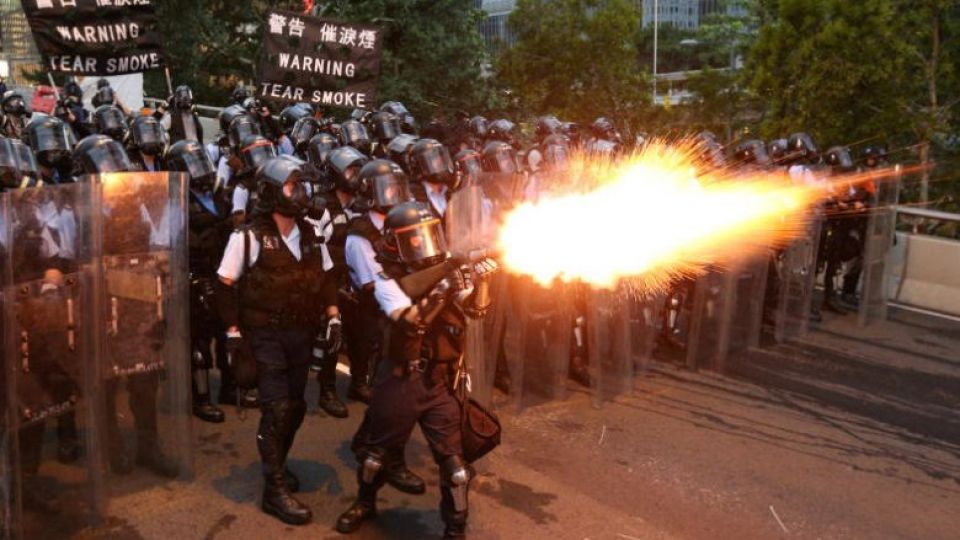June 14, 2019
Protests have shut down Hong Kong for the past several days before a government crackdown.
Beijing yesterday condemned the unrest that broke out in Hong Kong over the city’s extradition Bill as an organised riot, and said it supported the local government’s use of lawful means to resolve the situation.
Asked if the central government supported the use of rubber bullets and tear gas on protesters on Wednesday, Chinese Foreign Ministry spokesman Geng Shuang said that mainstream public opinion in Hong Kong was against any act that undermines the city’s prosperity and stability.
“Any civilised and lawful society will not tolerate the destruction of peace and tranquillity,” he said.
“The Chinese central government strongly condemns all types of violence and supports the Hong Kong government to handle the matter according to the law.”
Chinese state media has blamed Hong Kong’s opposition camp and foreign elements for inciting lawlessness and exploiting the issue for their own benefit.
The English-language China Daily said the extradition Bill satisfied international conventions, but “the opposition camp and its foreign masters seem willing to oppose it for their own purposes at the expense of the city’s rule of law, public safety and justice”.
The nationalistic Global Times echoed this in multiple editorials yesterday that blamed the protests on “radical opposition forces (and) the Western forces behind them”.
“Radical opposition groups in Hong Kong are colluding with hostile forces out of their own political motivations,” it said. “Hong Kong residents should avoid being cheated, misled and exploited by them.”
Discussions of the protests on Chinese social media such as the Twitter-like Weibo service remained tightly controlled, limited mainly to state media carrying the Foreign Ministry statement.
The few exceptions were posts put up by pro-Beijing accounts, including one that claimed it had proof of Central Intelligence Agency “black hands” masquerading as foreign journalists among the protesters, and another that showed a man shouting at pro-democracy legislator Tanya Chan about being brainwashed.
Chinese netizens appeared to be largely aligned with Beijing’s narrative, with many rueing the paralysis wrought by the mass protests. “I hope that the people of Hong Kong will become more rational and not be manipulated by foreign forces,” said a netizen surnamed Kang.
However, there is also a strong sentiment that Hong Kongers are ungrateful or that they feel they deserve special treatment.
“How come they can sign (extradition agreements) with the whole world but not the mainland?” asked one netizen surnamed Gu.
“Hong Kong has returned to China; this is just like a child crying and refusing to be disciplined,” said another commentator, Yu Xiang. “He just needs to be spanked.”
A four-minute video posted by Global Times editor Hu Xijin, analysing the root cause of the protest, was widely shared, garnering more than 5,000 likes, shares and comments.
Mr Hu said political confrontations are a “game used to achieve balance” in Western societies, but have no place in non-Western societies where they erode social governance and the societal compact.
There were few dissenting comments, but some observers noted that Mr Hu appeared to be one of the few personalities allowed to speak at length about the Hong Kong situation.
“What has happened? Even Old Hu has been mobilised,” said Weibo user Youda Fanshu, using a nickname for Mr Hu.


